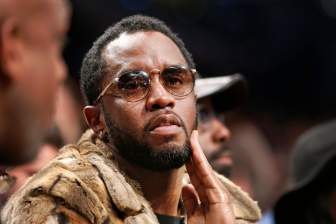London has looked from within to hire their new Police Chief.

Steve Williams was introduced as London’s new police chief on Wednesday, replacing John Pare who will retire from the role on June 19.
Williams will be the 20th police chief in the 164-year history of the London Police Service and has been with the force since 1992 serving in various positions including with Major Crimes, Patrol Operations, and Professional Standards and Human Resources.
His appointment ends a five-month nationwide search for Pare’s replacement. Pare, 55, became chief in May 2015, taking over for outgoing chief Brad Duncan.
As part of the search, the London Police Services Board released a survey to the public asking residents what their expectations were from a police chief. The board also tapped the recruitment firm Odgers Berndtson to assist in conducting a larger cross-country search.
More than 12 candidates applied for the position, and while many were exceptional, Williams is who ultimately stood out, said London Police Services Board Vice-Chair Susan Toth.
“It was a combination of factors,” said Toth, who chaired the recruitment process for Pare’s successor. “He’s somebody who comes from both a lot of experience in policing, but as well as that academic-based policing side.”
- Crown argues lawyer tied to Ryan Wedding a flight risk, bail fate expected Dec. 23
- Man charged with manslaughter after girlfriend freezes to death on Austrian mountain
- ‘I believe in his innocence,’ wife of lawyer tied to Ryan Wedding tells court
- International drug trafficking ring that used Canada Post dismantled: RCMP
“What pushed us over is that piece of, here’s somebody that we know has that long history internally, we’re going through a lot of changes… The board was looking at those surveys and what those surveys were also focused on was that community engagement piece. There was certainly a focus on that that I sensed from Deputy Chief Williams.”

Get daily National news
Williams’ appointment as chief comes amid a busy period for the force, including ongoing budget and contract talks. In addition, the LPSB is on the lookout for a successor for Deputy Chief Daryl Longworth who will become Woodstock’s chief of police in September. Trish McIntyre has been named acting deputy chief, becoming London’s first female deputy chief.
Speaking to reporters, Williams said his long-term vision for the force would be made public once the full leadership team was in place, but he noted some of his planned priorities.
“We have some serious challenges… public health challenges,” Williams said. “The opioid epidemic, we have a homeless population, poverty, mental illness… all of the above work together sometimes and create a significant workload for the police, and then there’s the human factor as well, there’s people suffering on the streets.”
Other priorities, Williams said, include health and wellness among those within London police, and modernizing the use of technology. “How we deploy officers, is it effective, is it efficient? We need to be cognizant of the shrinking budget envelope that’s open for us.”
Asked about the importance of how the public perceives the London Police Service, Williams said it was vital for policing.
“To say I’d like to change it, I think it’s by and large a positive relationship with the community,” Williams said. “There’s always going to be challenges and hiccups and bumps in the road… there’s a lot of various interests out there that we may not always see eye to eye with. So you work with the community groups, the partners, and you listen to people, you get their point of view.”
His hiring continues a 20 year trend in London. The London Police Services Board hasn’t hired from outside their ranks since 1998 when Al Gramolini, who joined London Police from the RCMP and later resigned in disgrace while pleading guilty to fraud.
London Police Services Board chair Mo Salih sparked some controversy early in the hiring process when he said it would be innovative and break from tradition. Salih said the board was seeking a “chief of change” and a “non status quo” candidate.
Salih would later walk those comments back when some took offence. The hiring process was different from previous searches; it was open to anyone who wanted to apply. Traditionally, the job was only open to officers who held a senior rank.
Williams held a number of portfolio’s during his time as deputy chief. He was originally in charge of the administration side before he took over operations and investigations.













Comments